Leading by Example
Here are just some ways that our members are leading on climate action in their communities
-

Milwaukee Efficient Buildings Benchmarking Program
In June 2024, The City of Milwaukee Common Council passed a new energy benchmarking ordinance to help reduce greenhouse gas emissions from commercial buildings in the City. Owners of commercial and large residential buildings are now required to track and report their building’s energy use. The City of Milwaukee's Environmental Collaboration Office launched a "Milwaukee Efficient Buildings Benchmarking Program" to support building owners with complying with the ordinance.
-

Net-Zero Emissions Public Safety Center
VILLAGE OF MCFARLAND
In 2023, the Village of McFarland completed construction on its new net-zero emissions Public Safety Center, which houses the Fire/Rescue, Municipal Court, and Police departments. The building features geothermal heating and cooling system, solar panels, electric vehicle charging stations, and more. This is a big step by the Village toward its goals of generating 100% of municipal energy from renewable sources by 2040 and community-wide by 2050.
-

Clean Energy Plan
CITY OF GREEN BAY
In May 2021, the City of Green Bay approved a resolution establishing a climate goal of 100% clean energy and carbon neutrality for the entire Green Bay community, including residents, government, and businesses, by 2050. In November 2023, the City passed their Clean Energy Plan that lays out a roadmap with comprehensive strategies to help reach their clean energy goals over the next 5-10 years.
-

LEED Cities Certification
CITY OF MIDDLETON
LEED, which stands for Leadership in Energy and Environmental Design, was started by the U.S. Green Building Council and is used as a rating system to set standards for cities and community’s sustainable building practices. Middleton is the first municipality in Wisconsin to earn this certification.
-
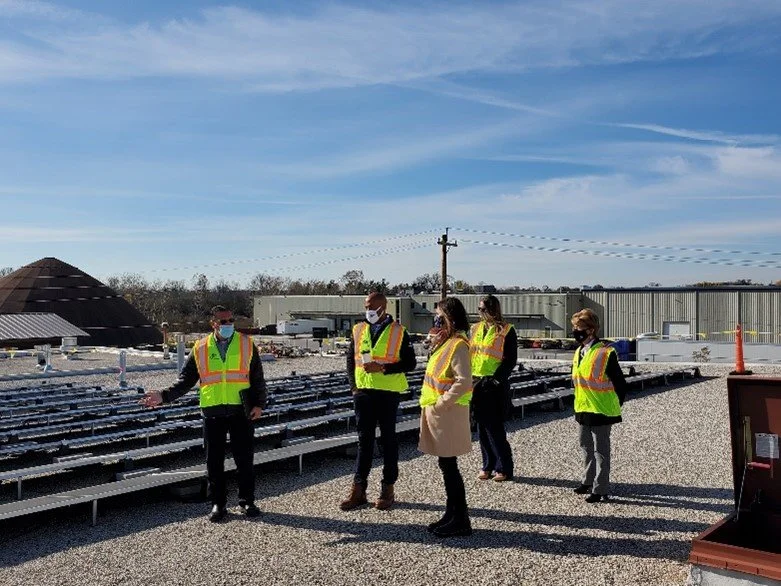
Solar Installation on Municipal Services Building
CITY OF APPLETON
The City installed a 296 kilowatt system on the roof of the building. They anticipate an annual savings of $28,363 based on current electrical usage. The project was partially funded by Focus on Energy incentives.
-
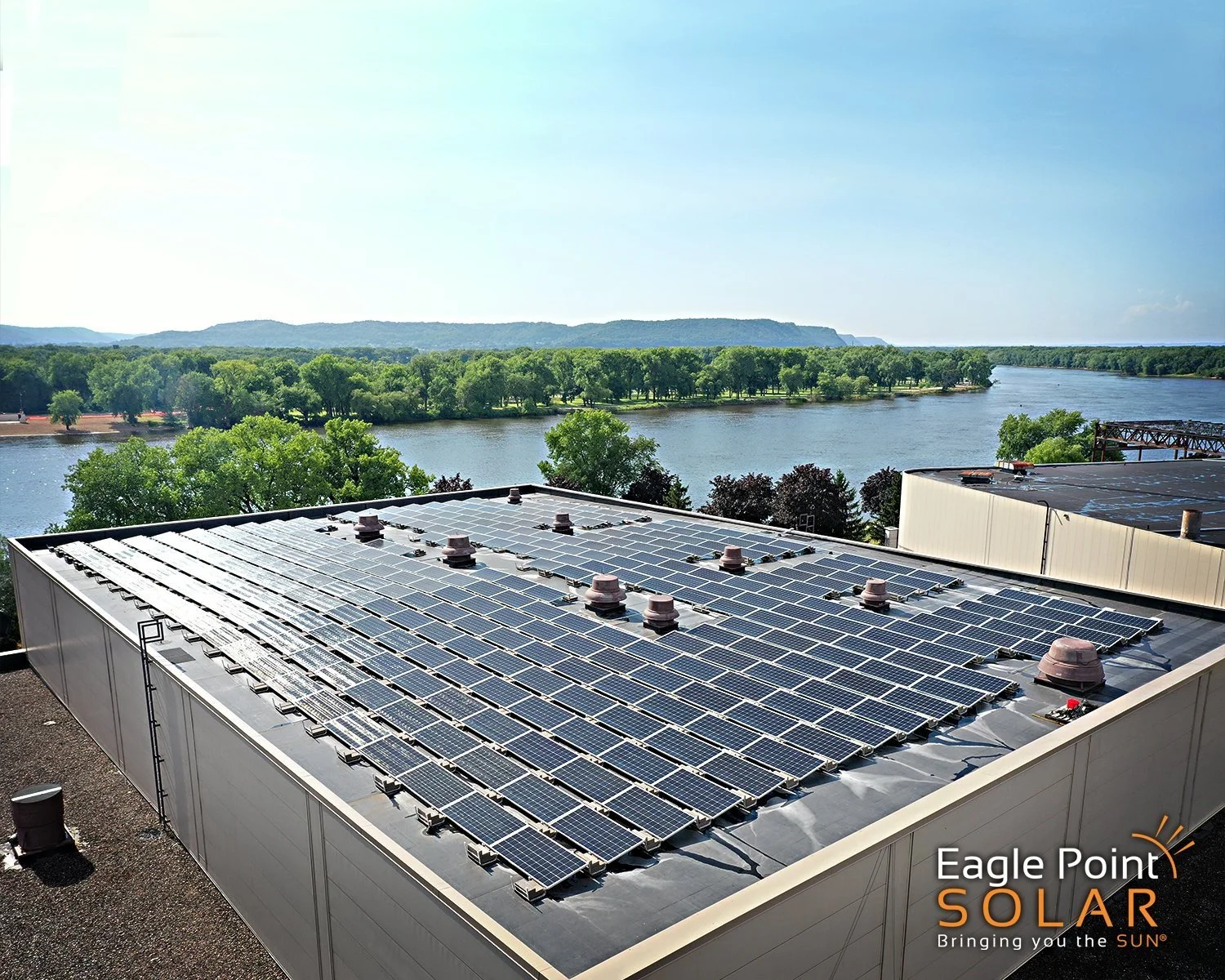
Solar Arrays on Municipal Buildings
CITY OF LA CROSSE
The City has used an energy performance contract to do energy efficiency retrofits and add solar panels to seven municipal buildings through a partnership with Eagle Point Solar; the next phase will be taking on three municipal pools and an ice area!
-

Milwaukee Shines Solar Program
CITY OF MILWAUKEE
ECO’s Milwaukee Shines solar program has an “All of the Above” solar strategy that supports group-buys for homeowners, solar on municipal buildings, and a 2.25 MW solar project on a city-owned landfill in partnership with We Energies.
-
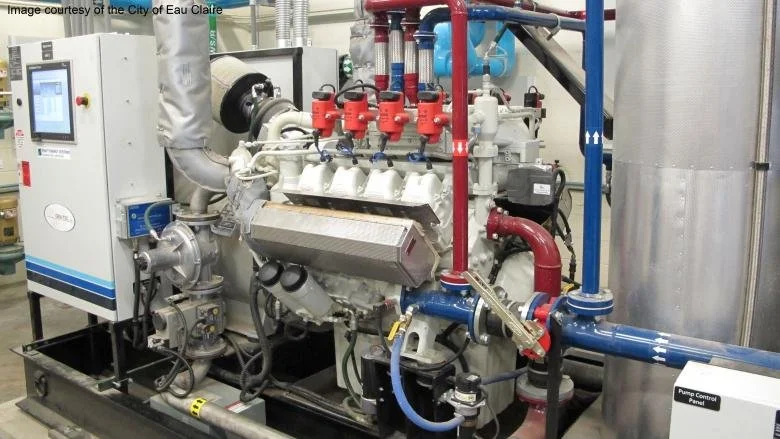
Biogas Wastewater Treatment Plant Upgrade
CITY OF EAU CLAIRE
For decades the plant has been capturing methane and using it in two generators to offset some of the plant’s hot water and electricity needs.
-

Renewable Energy Action Plan
CITY OF EAU CLAIRE
The Renewable Energy Action Plan (REAP) addresses how Eau Claire will meet its 100% renewable energy and carbon neutrality commitments by 2050.
-

Climate & Equity Plan
CITY OF MILWAUKEE
This Plan is the latest effort of the City’s work to combat climate change, advance racial equity, and ensure long-term prosperity—work that has made Milwaukee a leading city in Wisconsin on climate policy.
-

Landfill Renewable Natural Gas
DANE COUNTY
The County built a facility at the landfill that cleans the landfill methane to RNG quality. Now, the county uses the RNG to fuel some of their fleet (at savings over diesel) and sells RNG to Kwik Trip. The whole effort pays off in about 5 years and after that, Dane County sees profits.
-
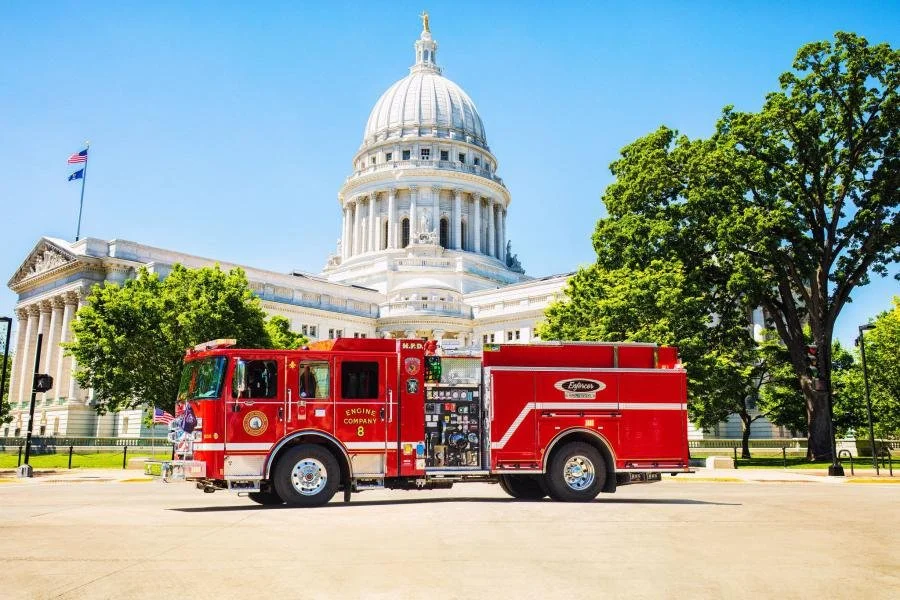
Transitioning City Fleet to low-carbon vehicles
CITY OF MADISON
The City now has over 100 electric vehicles, more than 150 hybrid-electric vehicles, and the first all-electric fire truck operating in the US.
-
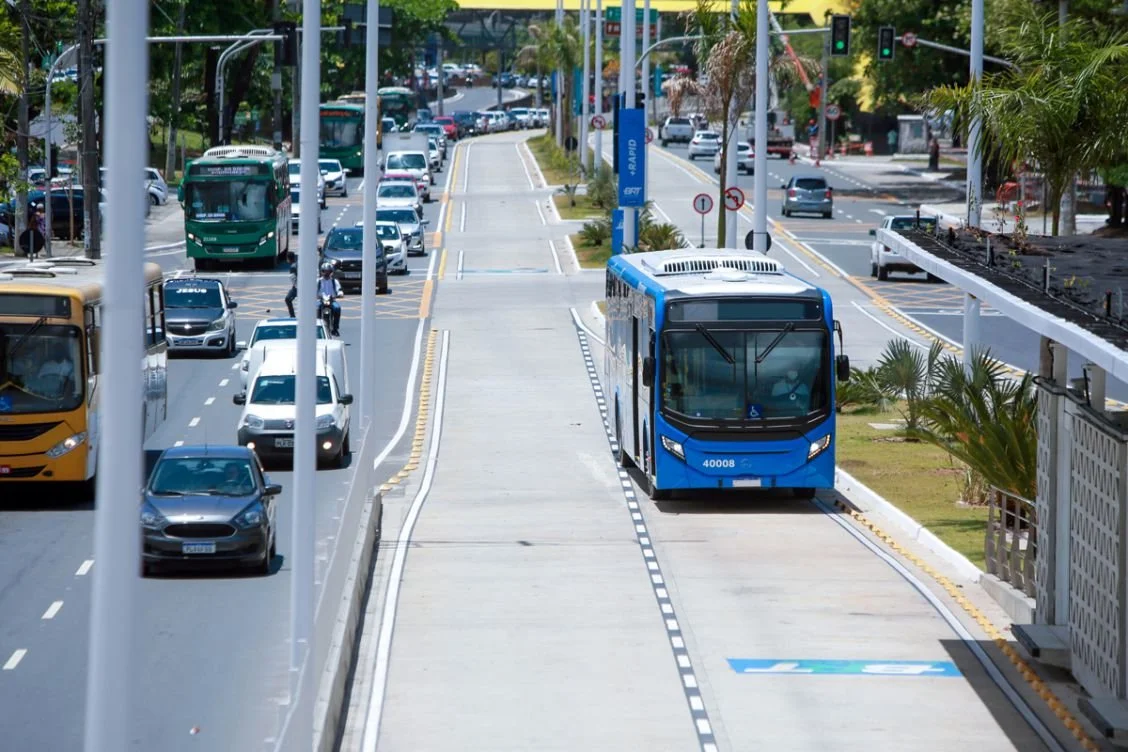
Bus Rapid Transit using Electric Buses
CITY OF MADISON
The City started a Bus Rapid Transit system that will expand access to low-cost, reliable transportation using zero-emissions electric buses. Construction began in 2023 with the service becoming operational since 2024.
-

Nine-acre Solar Installation on former Landfill
CITY OF MILWAUKEE
In 2022, the City and its partners completed a nine-acre solar project on a landfill next to General Mitchell Airport. This is the largest solar installation in the City to date!
-

Sustainability Leaders Collaborative
DANE COUNTY
In collaboration with the City of Madison, Dane County brought together local governments and school districts to accelerate clean energy efforts. It’s all about learning from each other and getting further faster.
-

Building Energy Savings Program
CITY OF MADISON
The Building Energy Savings code aims to improve energy efficiency in large commercial buildings community-wide through energy benchmarking and tune-ups. The program provides the training, support, and information that building owners need to benchmark and tune up as well as take the next steps to turn building efficiency knowledge into action.
-

Solar on Public Works Building
VILLAGE OF WHITEFISH BAY
The Village placed rooftop solar on the Department of Public Works building, with a grant from Focus on Energy covering 30% of the project's cost. (Photo: Arch Electric)
-
Solar PV array at Fire Station #5
CITY OF GREEN BAY
The City’s PV installation was a 19.2 KW roof-mounted array at Fire Station #5. The array is offsetting ~20% of the station’s electricity usage. The project was completed in September 2021.
-
Permeable Pavement Street
CITY OF GREEN BAY
The City has implemented green stormwater infrastructure (GSI) initiatives to increase resiliency to the effects of changing climate patterns. In 2022, the City finished contruction of it’s first permeable pavement street, which will reduce stormwater runoff and improve water quality of runoff into the Fox River.
-
Community Solar Garden
CITY OF EAU CLAIRE
In 2017, Eau Claire was ranked in the U.S. top ten for the Department of Energy’s SOLSMART program. With their utility Xcel Energy, they turned a city brownfield landfill into a brightfield so residents and businesses could subscribe to a community solar garden.
-
Airport Solar Partnership
DANE COUNTY
Dane County supplied the land, MG&E built the solar, and the County buys the power at a lower rate. More than 20,000 solar panels generate 9 megawatts of renewable electricity— enough to meet 40% of the electricity used by all county-owned facilities.
-
TIF Policy for Electric Vehicles
CITY OF STEVENS POINT
Projects requesting TIF assistance are required to supply a certain amount of EV charging stations based on the size and scope of the development
